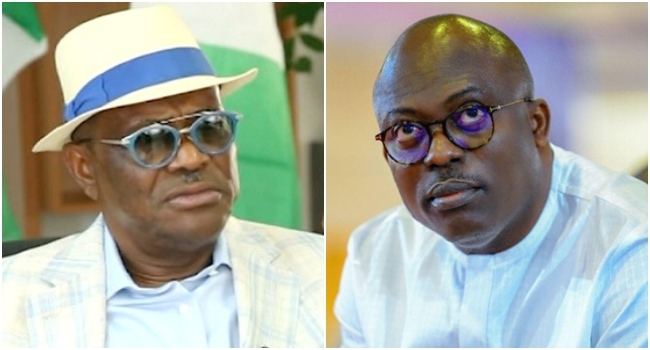
The President of Nigeria, Bola Tinubu, on March 18, 2025, declared a state of emergency in Nigeria.
The declaration led to the suspension of Governor Siminalayi Fubara, his deputy and all members of the House of Assembly.
The president thereby appointed Retired Admiral Ette Ibas as Sole Administrator of the state.
Since then, the declaration of a state of emergency has generated several thoughts, conversations, and opinions, including the constitutional backing of the declaration.
In an in-depth discussion on Arise TV’s Good Morning Show, a senior advocate of Nigeria, Abiodun Jelili Owonikoko, provided a legal analysis of President Bola Ahmed Tinubu’s decision to declare a state of emergency in Rivers State. Addressing concerns surrounding the constitutionality of the proclamation and the appointment of an interim administrator, Owonikoko defended the government’s actions, asserting that due process was followed in accordance with1999 Constitution.
Emergency Declaration and Constitutional Backing
Owonikoko emphasised that the Nigerian constitution, under Section 305, grants the president the authority to declare a state of emergency in any part of the country when circumstances warrant such action. He explained that this provision was crafted to avoid the legislative gridlock that occurred under the 1962 Constitution, where emergency declarations required parliamentary approval before taking effect, leading to significant political turmoil.
“The drafters of the 1999 Constitution learned from history,” Owonikoko stated. “Rather than having the parliament debate extensively before a state of emergency is declared, the constitution now gives the president the initial power to act swiftly, subject to legislative review within 48 hours.”
He further highlighted that the proclamation is only effective if it gains the approval of two-thirds of the National Assembly. “If the president did not do his homework and assumed that parliament would see things his way, he would have been disgraced within 48 hours,” he added.
Legislative Approval and the Vote Controversy
Responding to criticisms regarding the approval process, Owonikoko acknowledged that how the National Assembly approved the proclamation—particularly the use of a voice vote—has raised concerns about transparency. However, he maintained that the National Assembly has the prerogative to determine its voting procedures unless challenged in court.
“If evidence is produced showing that the required quorum of two-thirds of the House of Representatives and the Senate was not met, the proclamation can be struck down,” he noted. “But as of now, the decision stands, and it must be assumed that the approval was unanimous until proven otherwise.”
Presidential Powers to Suspend a Governor
One of the most contentious aspects of the emergency declaration is the suspension of the state governor, Siminalayi Fubara. Addressing this issue, Owonikoko asserted that the president does not have the power to remove a sitting governor but can temporarily freeze executive powers if the governor is deemed a threat to law and order.
“The executive power of a governor must be exercised in a way that does not impede federal authority,” he explained, citing Section 5(3) of the Constitution. “Where a governor’s actions contribute to a breakdown of law and order, the president has the constitutional right to intervene.”
He also referenced the Supreme Court’s ruling that there was effectively no functioning government in Rivers State due to the political crisis. “The president does not need more justification than that,” he remarked.
Appointment of a Sole Administrator
Owonikoko clarified the legal standing of the interim administrator appointed to oversee Rivers State. He argued that the appointment was not a replacement of the governor but a temporary measure to maintain law and order.
“The sole administrator is not running an independent administration,” he cautioned. “Governor Fubara remains the governor, but his powers are currently frozen to prevent further instability.”
However, he warned that the administrator must act strictly within the limits of his mandate. “If he starts signing Certificates of Occupancy or appointing commissioners, that would be an overreach and could provide grounds for the courts to strike down the proclamation,” he advised.
Judicial Review as the Next Step
Owonikoko concluded by emphasizing that the judiciary remains the final arbiter on whether the president’s actions constitute an abuse of power. “The courts can be invited to determine if the declaration was justified,” he said. “But as of now, the executive and legislative branches have played their roles, and the constitution has functioned as intended.”
The debate surrounding the state of emergency in Rivers State is expected to continue, particularly as legal challenges loom. With tensions high, all eyes remain on the judiciary to potentially clarify the constitutional boundaries of executive power in Nigeria.



